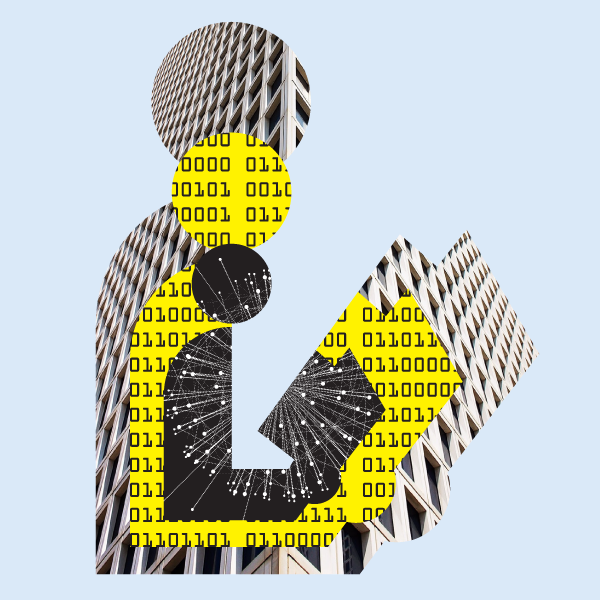
How libraries can guide people through the maze of information available in the digital age
Erin Berman is innovations manager for the San Jose Public Library, a Prototype Fund winner in the first Knight News Challenge on Libraries. Below, she writes about opportunities worth exploring in the second Knight News Challenge on Libraries, which is now open for entries. The challenge asks, How might libraries serve 21st century information needs?
Want to learn more about the Knight News Challenge on Libraries?
Knight’s John Bracken hosted a reddit Ask Me Anything chat on Feb. 29. Learn more here. You can also join us for virtual office hours on Wednesday, March 16, to ask questions and talk with members of our team about the challenge. Apply at newchallenge.org.
How do you classify a 21st century information need? What is different about today’s needs versus those in the past? What role will libraries play in serving these needs? It is with these questions in mind that we begin developing and shaping the library of the future.
Librarians were once thought of as the gatekeepers to knowledge. They held the keys that unlocked a vast universe. Without their guidance it was nearly impossible to obtain information. Then one day, the screech of modems came into the library. Yahoo!, Altavista and Ask Jeeves popped onto computer screens through this mysterious new tool. The keys to the kingdom of knowledge were copied and pasted into everyone’s hands. For the first time, the average person could search for information without any training.
Yet, in its infancy the Internet was small and libraries still reigned supreme. Slow at the start, but getting faster every day, the Internet began growing. All of humanity’s knowledge was making its way into the homes and pockets of people around the world. At any moment you can now access nearly any piece of information you desire. Some believed the days of libraries were numbered, but librarians understood that these changes created a new role for them, as guides and teachers helping patrons wade through vast stores of knowledge.
With access to so much information, we all face a daunting challenge. How do we distinguish between truth and fiction? The Internet doesn’t know how to ask a reference question to find out if what I think I want is really what I need. Google doesn’t research whether the news article I’m reading is reliable. Blogs that tout the virtues of some supplement seem to be full of evidence, but may really be written by a company trying to get my business.
Information literacy has been at the core of libraries’ missions since their inception. However, there are new sets of skills to be learned in the digital era. Where once news came from trusted papers and television networks it now comes from an onslaught of sources, such as citizen reporters and 24-hour news stations. People are confronted with more choices than ever. It can be paralyzing trying to decide what food is healthy, which product to buy, or which candidate to trust.
Being able to critically evaluate information is essential to leading a successful life, and libraries have an essential role to play in our communities. Many information literacy classes are focused on teens or taught at colleges. For adults that went to high school before the Internet or never attended college, they may be left to blindly stumble through the massive superhighway of the World Wide Web. Libraries can bridge the gap; the skills learned through information literacy programs help patrons get jobs, vote for candidates that represent their values, obtain sound medical advice, and make more informed life choices.
The first solution that may jump into people’s minds when they hear 21st century information needs is technology. Libraries are teaching people to code, to use 3-D printers, and to download books on e-readers. All of these are important skills, and libraries should use new technologies to teach information literacy. No longer does the topic have to be presented in dry, boring classes. Think about how the library can harness the power of technology to teach patrons these vital critical thinking skills.
That is what we are doing here in San Jose. Our Virtual Privacy Lab (VPL), which received support through the last News Challenge on Libraries, helps people understand their privacy rights in the digital age, enabling them to make informed decisions about their online activities. We created the lab through partnership with the International Computer Science Institute and working directly with our patrons to build a platform that met their needs.
Libraries can also leverage available tools and technology to connect with other libraries or organizations. As you move forward with your application for this current Knight News Challenge, remember that together we are more powerful than alone. Working in partnership, we can create innovative services for our patrons, which boost information literacy skills or foster the advancement of any 21st century information need.
Follow Erin Berman on Twitter via @MohawkLibrarian.
The Knight News Challenge on Libraries will award $3 million for the best U.S. ideas that respond to the question, How might libraries serve 21st century information needs? Visit newschallenge.org to apply by March 21, view our challenge brief, timeline, FAQ page, and applications from the first News Challenge on Libraries. Keep an eye on Knight Blog for updates, tips for applying and promotional events. You can also reach us with questions on Twitter via @knightfdn, @heychrisbarr, or via e-mail [email protected].
Recent Content
-
Communitiesarticle ·
-
Communitiesarticle ·
-
Communitiesarticle ·



